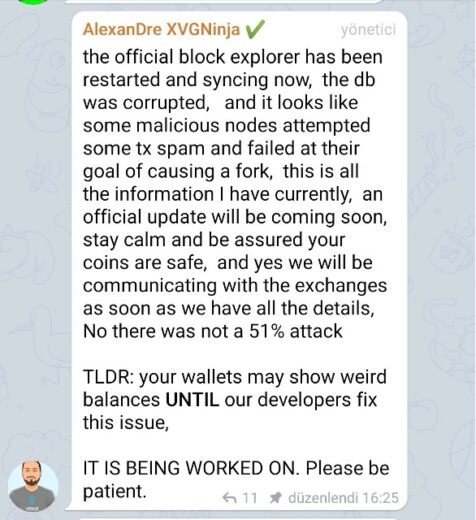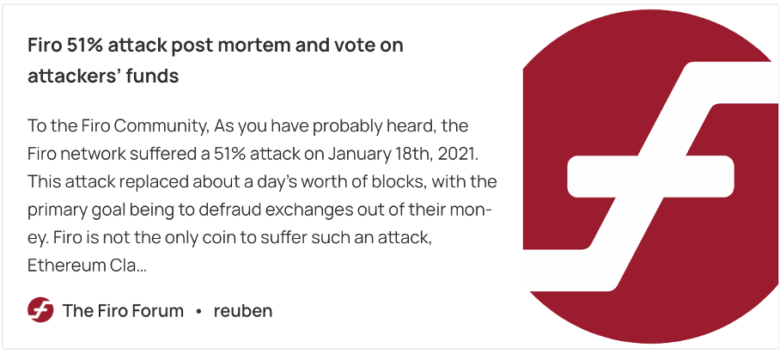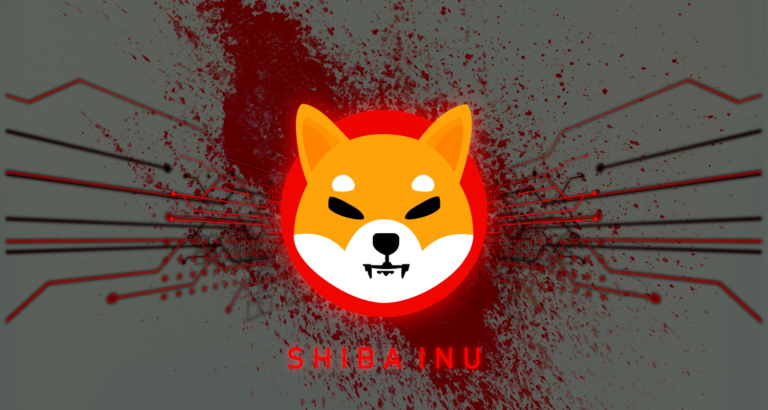The rise of cryptocurrencies is continuing through further developments and innovations within the sector, and more problems people suffer from resolving by different mechanisms. For example, today, everybody is well aware of Bitcoin; it is widely used by millions. However, we all know that Bitcoin transactions in Blockchain networks are highly transparent, meaning that people have access in terms of seeing the transactions made. That is not something desirable in all cases.
Before moving on: Cryptocurrencies 101
That problem brings us to today’s topic: privacy coins. Today, we are here to share with you some of the best privacy coins available in the market.
KEY TAKEAWAYS
- Privacy coins are a type of cryptocurrency that can hide the transaction information on the Blockchain systems.
- Privacy coins are mainly used to ensure confidentiality in transactions and block third-party access.
- Obscuring transaction information is conducted in different manners in different privacy coins.
- Many privacy coins benefit from the use of t-addresses and z-addresses.
- Zero-knowledge technology is widely used in privacy coins.
Nowadays, there is a great privacy concern as the finance sector is integrated with technology more than ever. People require more confidentiality regarding their personal data, and in this context, privacy coins are born to bring a solution to this concern.
In the simplest terms, privacy coins are cryptocurrencies that have one specific feature that many other cryptocurrencies don’t have: anonymity. In other words, privacy coins are used to make transactions without their personal data and transaction details being available to the public; hence the transactions are untraceable.
Note that cryptocurrencies can be categorized into many names. See stablecoins and memecoins also!
Table of Contents
Monero (XMR)
- Price: 140.25 USD
- Market Cap: 2,550,844,645 USD
- 24-hour trading volume: 151,744,786
- Circulating supply: 18,120,962.58 XMR
For those who demand financial confidentiality in their crypto trade issues, Monero offers high levels of privacy features, and those features are integrated in a way that would apply to every transaction. So, if someone decides to inspect Monero’s Blockchain system, they will not be able to detect the transactions conducted, unlike traditional cryptocurrencies.
Monero’s software is designed in a way that would be updated twice a year. That allows the integration of new features without causing significant problems and enhances privacy by introducing additional cryptographic advances regularly. An example would be the ability to create one-time addresses for users and hide transaction amounts.
Zcash (ZEC)
- Price: 89.75 USD
- Market Cap: 1,290,676,844 USD
- 24-hour trading volume: 204,916,597 USD
- Circulating supply: 14,380,956.25 ZEC
Zcash is another top-rated privacy coin which uses zero-knowledge proofs within its system. Zero-knowledge proofs refer to the process in which the proof is provided to the system by not revealing any further information than the proof itself. This enables the transaction information to get proved with great confidentiality, even in a public Blockchain network.
Another feature of Zcash is that it involves a Zero-Knowledge Succinct Non-Interactive Argument of Knowledge, also known as zk-SNARKS. This feature ensures that shielded Zcasch transactions will be entirely encrypted within the Blockchain network, and at the same time, the network will verify it as valid.
Zcash uses two different types of addresses, namely transparent and shielded addresses. In the transparent addresses, the addresses can be tracked within the Zcash blockchain, just like how Bitcoins are tracked. In the shielded addresses (known as z-addresses), it is not possible to review the data on the Blockchain network, making them invisible. In z-addresses, the number of funds held is also invisible.
So, in a case where funds are sent to z-addresses from transparent addresses, people can’t tell where the funds went. If the transaction is conducted between two z-addresses, that means it is impossible to tell neither where it came from nor where it went – it ensures full confidentiality. Allowing the use of two different addresses gives great flexibility to users about the degree of anonymity they would like to use on their transactions.
Recently, Zcash announced its “largest upgrade in history.” The development team released the 5.0.0 codebase, in which the NU5 upgrade is supported, and it will take place around May 31. The upcoming upgrade seems to excite many people. According to the news, they are planning to implement Orchard shielded payment protocol, in addition to the Halo proving system.

Oasis Network (ROSE)
- Price: 0.06399 USD
- Market Cap: 222,686,142 USD
- 24-hour trading volume: 48,866,770 USD
- Circulating supply: 3.49B ROSE
ROSE is another privacy coin, and it is the native token of Oasis Network. The main use cases of this token are the delegation on the consensus layer, paying transaction fees for smart contracts, and staking by validator nodes.
The Oasis Network can also be used to create smart private contracts that provide end-to-end information secrecy, ensuring data protection during operation. The network is extremely scalable, readily outperforming competing networks’ poor transaction speeds and expensive transaction costs. The scalability is made possible by including two layers: the consensus and paratime layers.
Decred (DCR)
- Price: 31.96 USD
- Market Cap: 452,348,043 USD
- 24-hour trading volume: 2,504,181 USD
- Circulating supply: 14M DCR
Decred is one of the earliest cryptocurrencies we have seen in this list, and initially, they copied Bitcoin’s code to further modify it with the purpose of improving it and rewarding the token holders. The main purpose of its development was to bring a solution to the scalability problem.
The development team created and improved Decred as a hybrid-consensus mechanism which includes elements from Proof-of-Stake and Proof-of-Work. In this context, PoW miners will be responsible for verifying transactions, whereas PoS stakers will have the ability to vote for network upgrades.
The stealth mode of Decred had been worked on since 2017. With the continuous updates, Decred became a privacy coin, and it became less prone to transactional errors that can occur within the system. The point where Decred is claimed to be competing with other privacy coins is its simplicity. In most privacy coins, users can choose two kinds of privacy options – obfuscating the sender and obfuscating the amounts of funds being sent. Decred hides the sender’s identity only, bringing a great simplicity to the process.
Recently, the Decred team announced the release of Decred v1.7.2, which is the latest update.

Horizen (ZEN)
- Price: 20.02 USD
- Market Cap: 247,942,320 USD
- 24-hour trading volume: 29,345,159 USD
- Circulating supply: 12,383,000.00 ZEN
Horizen is both a privacy cryptocurrency and a sidechain, allowing anyone to build privacy-based applications. As their website describes, it’s powered by the “most robust and secure infrastructure enhanced with multiple security layers.” The node system is designed to provide security, reliability, speed, and scalability all at once, hence offering a solution to the Blockchain trilemma. The network has considerable protection, which is claimed to be effective against more than half of the attacks.
ZEN is the native token of the Horizen network, and it is classified as a mineable Proof of Work coin. It is possible to find ZEN on many of the major crypto exchange platforms. It has enhanced privacy features, and t-addresses and z-addresses are used. 12 network confirmations are needed for ZEN.
Secret (SCRT)
- Price: 19.13 USD
- Market Cap: 236,891,450 USD
- 24-hour trading volume: 31,260,083 USD
- Circulating supply: 12M ZEN
Secret (SCRT) is the native token of the Secret Network. It shares common features with other privacy coins we have mentioned here regarding the encryption of balance, transaction, and recipient information. If any user wants to reveal their balance to third parties, they need to create a viewing key. This ensures if any user wants to comply with a regulator at any time in need, they don’t need to use another network and can simply do so within Secret Network.
The Secret Network itself provides privacy-preserving smart contracts for all of this to happen. That means the privacy comes on default, increasing usability and a great variety of use cases. That means Secret tokens are also private by default. The base of the privacy standards is CosmWasm’s CW20 and Ethereum’s ERC-20 and ERC-777. Secret tokens are classified within the SNIP-20 standard, which is similar to Ethereum’s ERC-20 standard – but it’s different from it because they are private by default.
Verge (XVG)
- Price: 0.004663 USD
- Market Cap: 76,962,120 USD
- 24-hour trading volume: 3,305,506 USD
- Circulating supply: 16.50B XVG
Verge is another privacy coin characterized by being a decentralized and open-source cryptocurrency in which entirely anonymous transactions are conducted. This is made possible by obfuscating the IP address and the location. It was first launched under the DogeCoinDark name, but it was later rebranded as the Verge we know today.
If one can track the IP address, it is possible to find sensitive information such as the activities they conducted on their device, and since Verfe obfuscates the IP address, it provides enhanced confidentiality and anonymity. This anonymity is provided through various networks, including the invisible Internet Project and The Onion Router (TOR).
Invisible Internet Project is used to encrypt user data and transfer it within an anonymous, peer-to-peer, volunteer-run network. TOR is an anonymity-centric network where the identity of the users is preserved through bouncing their communications within distributed network relays and tunnels. Both of them work together to hide the location and IP addresses.
What makes Verge different from other privacy coins is its transparency. Although major privacy coin implications are conducted through cryptography techniques, they are not as transparent as Verge.
In December 2021, Verge was faced with a “disaster,” where 200 days’ worth of transactions were wiped from their network. The situation was handled as soon as possible. This event had brought much negative feedback about the network, and the prices were fallen drastically at that time.

Dusk Network (DUSK)
- Price: 0.1299 USD
- Market Cap: 51,831,022 USD
- 24-hour trading volume: 14,408,933 USD
- Circulating supply: 399M DUSK
DUSK is the native token of Dusk Network, which is focused on providing a privacy-oriented protocol for Decentralized Finance applications. Distributed ledger technology and many other innovative technologies are combined within this network. One of the main focuses is on allowing tokenization of securities, and it’s the ruling principle in which programmable security tokens are created while decreasing automation costs.
Native smart contracts in the system are run through the Private Proof of Stake extraction-based consensus mechanism and the Zero-Knowledge proofs. The use cases of the DUSK token include initiating transactions, deploying smart contracts, participating in staking and using atomic swaps. DUSK can also be used for the following cases:
- Exchanging with tokens based on XSC (Confidential Security Standard)
- On-chain governance within XSC
- Getting block rewards through some protocols
- Deploying multiple dApps
- Paying gas fees
Confidential Security Standard plays a vital role for DUSK. It was designed to enable seamless interaction conducted between regulated and unregulated assets. In other words, this project can be considered as a privacy-preserving sidechain for any other Layer 1 protocol, made possible through interoperability solutions.
Moreover, the privacy features are quite robust. The following are the privacy features of DUSK:
- Ring confidential transaction signatures
- Non-interactive, verifiable secret sharing
- A Segregated Byzantine Agreement consensus algorithm to allow programmability, privacy, and auditability
- Stealth addresses
- An anonymous network layer
- Cryptographically committed provisioners
Recently, the DUSK coin became available for exchange in the famous crypto exchange platform, KuCoin. Enthusiasts are excited.

Beam (BEAM)
- Price: 0.116 USD
- Market Cap: 13,274,538 USD
- 24-hour trading volume: 2,937,972 USD
- Circulating supply: 114M BEAM
Launched in 2019, BEAM was created to support confidential DeFi as a private network. The protocols used are MimbleWimble and Lelantus MW. The utilization of the MimbleWimble protocol hides the metadata and values of the transactions. While doing that, it also serves as a reducer for Blockchain bloating, which can be explained as a solution to the scalability problem. LelantusMW, on the other hand, is used to include anonymity and privacy on all fronts.
One of the main goals of the BEAM coin is to give users ultimate control over their funds. Since there are currently lesser cryptocurrencies that rely on the MimbleWimble protocol, BEAM seems to have some kind of potential.
Every transaction in BEAM is private by default, unlike many major privacy coins in the market. As an extra privacy element, Beam has added the ideas of secret transactions and private funds. This functionality will enable the emergence of new digital asset classes, including debt instruments, real estate assets, and new currencies, all may be traded anonymously on the Beam platform.
PIVX
- Price: 0.09758 USD
- Market Cap: 6,740,031 USD
- 24-hour trading volume: 119,550 USD
- Circulating supply: 69M PIVX
PIVX stands for “Private Instant Verified Transaction,” and it is a privacy coin that uses the Proof-of-Stake protocol. The main focuses of this token are community governance and decentralization. Other goals include enhancing transaction speed, minimizing fees, and increasing security.
PIVX was launched by DASH community members, and some changes have been made within the DASH technology to improve it further. For example, DASH was relying on a Proof-of-Work system, but this changed to a Proof-of-Stake system. The implementations of PIVX aspires to make private, anonymous, and secure decentralized transactions an everyday thing by making PIVX a go-to means to pay.
PIVX doesn’t have a maximum supply, which makes it somehow similar to traditional currencies regarding inflation. This was because the developers wanted to encourage daily usage more and avoid hoarding. The inflation rate is around 4% annually, yet the devaluation is taken under control by spreading the profits. It is possible to earn rewards through PIVX by Masternodes and to stake.
PIVX uses a custom version of the Zerocoin protocol, used to make anonymous transactions by obfuscating the addresses. Although PIVX uses libzerocoin technology that many other privacy coins use, a great majority of the coin is custom-made. As a result, the transactions can be entirely anonymous, where it’s not possible for Blockchain analysis to reveal the senders and receivers of the transactions.
Recently, Binance announced an update about PIVX trading pairs – there are over 100 now.

Super Zero Protocol (SERO)
- Price: 0.168 USD
- Market Cap: 37,830,893 USD
- 24-hour trading volume: 1,316,317 USD
- Circulating supply: 354M SERO
The SERO privacy blockchain is the first to use Turing smart contracts, and it uses Super-zk as a means of security. Super-zk is known for being a lot faster than the zk-SNARKs. SERO is the native token of the Super Zero Protocol. The use cases of SERO include the following:
- Rewarding miners
- Paying gas fees
- Make payments
SERO supports smart contracts by the use of Zero-Knowledge Proofs and has the world’s fastest Zero-Knowledge Proof encryption library. Anonymous trading is the default option, and the combination of Proof-of-Stake and Proof-of-Work is implemented.
Keep Network (KEEP)
- Price: 0.2058 USD
- Market Cap: 152,331,863 USD
- 24-hour trading volume: 2,616,984 USD
- Circulating supply: 737M KEEP
KEEP is the native token of the Keep Network, and it is designed for private transactions conducted on public Blockchains. So, users can benefit from the public Blockchain systems without sacrificing their privacy and confidentiality. The flagship product of KEEP is tBTC, which can be explained as a decentralized version of Bitcoin that is used on the Ethereum blockchain.
The whole system is entirely decentralized. This is made possible by tBTCv2, a decentralized bridge connecting BTC and Ethereum networks. It is the only permissionless solution available on the market. Keep network uses “Keeps” to enable contracts to use private data without revealing it to the public Blockchain. The protocol uses the highest level of encryption.
Pirate Chain (ARRR)
- Price: 0.8285 USD
- Market Cap: 159,170,049 USD
- 24-hour trading volume: 383,570 USD
- Circulating supply: 192M ARRR
Pirate Chain (ARRR) is another privacy coin that claims to be offering 100% privacy. The protocol they use enables users to remain confidential regarding their activities on the network, and hence nobody can see others’ activities as well. Zk-SNARKs are used to provide privacy and anonymity.
The blockchain system it uses is independent and secured by the delayed Proof of Work consensus, which enables 51% safety against attacks. The transactions are private by default.
MobileCoin (MOB)
- Price: 1.80 USD
- Market Cap: 133,373,176 USD
- 24-hour trading volume: 4,107,558 USD
- Circulating supply: 74M MOB
MobileCoin or MOB is the first carbon-negative cryptocurrency on the market, bringing the concept of “sustainable cryptocurrency” to the sector. The key features of MOB include quick transactions, being user and planet-friendly, and of course, being highly private and confidential. The mechanics are built on Stellar and Monero, the first being for consensus and the latter for privacy. Zero-knowledge proofs are used to maintain privacy in transactions.
Recently, MobileCoin was added to Binance’s Convert & OTC portal, meaning that users can choose from around 120 trading pairs with MOB.

Dero (DERO)
- Price: 6.88 USD
- Market Cap: 87,111,618 USD
- 24-hour trading volume: 346,423 USD
- Circulating supply: 12M DERO
DERO is another privacy coin, and it’s the first to combine proof-of-work and DAG block structure. The goal is to provide entirely anonymous transactions while bringing some innovative technologies that will take apart it from mainstream privacy coins.
The DAG network of blocks that corresponds to main blocks and side blocks is used to create the main chain. Conventional 51 percent of attacks are unfeasible, with side blocks contributing to chain proof-of-work protection. Different from the traditional Blockchain networks that we are used to, Dero deals with transactions through the smallest unit of computation instead of the blocks themselves. As a result, blocks on Dero may include double-spend or duplicate transactions. Yet, the network ignores those because they are filtered by the protocol.
To sum up, Dero aims to include decentralization and security through a proof-of-work blockchain while maintaining scalability and transaction speed. One of the important aspects of DERO is the use of CryptoNote, which enables anonymity by hiding the sender and receiver information of a transaction. Moreover, it includes complete SSL within the peer-to-peer layer, which is something that has not been seen before DERO.
Firo (FIRO)
- Price: 1.49 USD
- Market Cap: 19,676,091 USD
- 24-hour trading volume: 1,695,229 USD
- Circulating supply: 13M FIRO
FIRO first entered the market as Zcoin, but later it became FIRO. The protocols used are Dandelion, Sigma, and Lelantus. To ensure anonymity and confidentiality within the transactions, FIRO uses zero-knowledge proofs. Moreover, hybrid proof-of-work and LLMQ chain lock systems are used.
The native token of this platform is FIRO, which is a privacy coin. It takes place in different mainstream crypto exchange platforms, including but not limited to Binance and Huobi. One of the most innovative contributions of FIRO was that they were able to hide IP addresses without the need for a Tor browser, and this was possible thanks to the Dandelion protocol.
As of January 2021, Firo has exposed an 51% attack.

MimbleWimbleCoin (MWC)
- Price: 4.15 USD
- Market Cap: 44,983,826 USD
- 24-hour trading volume: 40,544 USD
- Circulating supply: 10M MWC
MimbleWimbleCoin (MWC) is the native token of the MimbleWimble Blockchain. It has enhanced scalability, fungibility, and privacy features than traditional Blockchain protocols. It is classified as a pure proof-of-work cryptocurrency. Every transaction in the base layer is conducted through CoinJoin, CTs, and signature aggregation.
The implementation of CTs is the main point where it stands out from other currencies since there are no addresses involved for privacy. Instead, two parties are connected through “blind factors.” The input and output of transactions, as well as the private/public keys of transaction participants, are encrypted using blind factors. Blind factors are accessible to only parties involved, and nobody else can see them. In the necessary circumstances, they can be used for proof of ownership.
VerusCoin (VRSC)
- Price: 0.581 USD
- Market Cap: 39,690,670 USD
- 24-hour trading volume: 10,547 USD
- Circulating supply: 68M VRSC
Verus Coin is another privacy coin that relies on zero-knowledge technology to ensure confidentiality and privacy. It works to offer PBaaS – known as “Public Blockchains as a Service.” A new consensus algorithm is introduced by Verus Coin, namely “proof of power.” It offers a hybrid model of Proof-of-Powe and Proof-of-Stake algorithms. This system is developed to solve the weak points of the traditional PoS implementations. The algorithm is immune to 51% of attacks.
Haven Protocol (XHV)
- Price: 1.21 USD
- Market Cap: 29,302,037 USD
- 24-hour trading volume: 1,035,628 USD
- Circulating supply: 24M XHV
Haven is a privacy coin built on the Monero, and it’s the first privacy stablecoin. Since Monero is considered to be one of the greatest sector leaders in the cryptocurrency world, it ensures to use of all the beneficial features of Monero, which is considered to be a great advantage for its users. It enhances this feature by allowing users to create private, stable currencies and commodities (xAssets) that will only be created by “burning” the Haven foundation currency (XHV).
The account and transaction information is kept confidential within this protocol, and it’s a community-owned protocol. Haven is a proof-of-work cryptocurrency and stems from the CryptoNote protocol.
Oxen (OXEN)
- Price: 0.4139 USD
- Market Cap: 24,123,957 USD
- 24-hour trading volume: 427,964 USD
- Circulating supply: 58M OXEN
OXEN is another privacy coin, in addition to being a secure messaging platform and a network anonymity layer. It includes tools to make “a more private future for the internet.” They describe their aspiration as providing a set of tools and facilities driven by the $OXEN cryptocurrency that will allow users and developers around the world to take advantage of the power of decentralized blockchain networks to attain unparalleled confidentiality while going about their everyday routines on the internet.
The instant anonymous payment mechanism of OXEN is “Blink,” which is claimed to be entirely private and secure. OXEN’s proof-of-stake implementation is Pulse, which is the working mechanism behind OXEN tokens being stakeable.
There is not much news about the OXEN token recently, but the team seems to be getting ready for some big changes or updates.

HOPR
- Price: 0.1325 USD
- Market Cap: 22,093,183 USD
- 24-hour trading volume: 338,374 USD
- Circulating supply: 166M HOPR
HOPR aims to entirely decentralize private data exchanges with a formal initial coin offering (ICO) in 2021. It can be explained as a blockchain-based technology that aims to tackle global data and privacy challenges. HOPR enables data privacy, which results in ultimate control over the assets users hold and open source support.
HOPR recently announced a sneak peek of their upcoming updates. They didn’t reveal many details, but it looks exciting.

Bytecoin (BCN)
- Price: 0.0007073 USD
- Market Cap: 13,131,526 USD
- 24-hour trading volume: 13,406 USD
- Circulating supply: 184B BCN
Bytecoin is a decentralized and private privacy coin. Its code is open-source, meaning that everyone can take part in its network. The payments conducted through Bytecoin are not traceable, thanks to the use of Ring signatures that facilitates the mixing of various outputs of similar value into a single transaction. In this way, it becomes nearly impossible to detect where the money in the transaction came from and where it went. Every address within the network is obscured.
Users can have various unlinkable addresses that are used for one time with a single set of keys. This is another way to make it more difficult to find a connection between addresses and transactions, hence increasing the level of confidentiality.
Apollo Currency (APL)
- Price: 0.0006097 USD
- Market Cap: 12,905,132 USD
- 24-hour trading volume: 580,342 USD
- Circulating supply: 21B APL
Another innovative privacy coin is Apollo Currency, which claims to be an “all-in-one currency” that includes different features of the mainstream cryptocurrencies we are familiar with. That utilizes the reach to the best features of all currencies without the need to sacrifice one to use the other one. One of the main goals of APL is to provide the fastest transactions available in the market. Moreover, Apollo Currency is the world’s first blockchain to include database level sharding. Here are the features of APL:
- Asset system
- Alias system
- Authentication system leasing
- Decentralized marketplace
- Advanced account control
- Multi-signature accounts
- Blockchain file storage
- Encrypted messaging
- Phased transaction
Epic Cash (EPIC)
- Price: 0.7463 USD
- Market Cap: 10,570,906 USD
- 24-hour trading volume: 62,278 USD
- Circulating supply: 14M EPIC
Epic Cash, known as EPIC, is a privacy coin taking place in the MimbleWimble. It was designed for GPU and CPU mining. EPIC is censorship resistant, meaning that nobody is allowed to interfere with the transactions. It is not possible for them to be filtered, blocked, blacklisted, or data-mined.
Recently, Epic Cash announced a puzzle contest in which the winners will get 500 EPIC.

Vertcoin (VTC)
- Price: 0.1544 USD
- Market Cap: 9,898,163 USD
- 24-hour trading volume: 130,922 USD
- Circulating supply: 64M VTC
Vertcoin is a privacy coin launched back in 2014. Its primary focus is decentralization, as well as privacy. It is an open-source cryptocurrency. Proof-of-Work algorithm (ASIC resistant) is used to secure the network and validate transactions. Since it is decentralized, it’s not controlled by a centralized organization or institution, and anyone can become a miner. Vertcoin uses the lightning network for scalability issues. Stealth addresses are used to ensure anonymity.
Recently, Vertcoin announced its 2nd annual Vertcoin emoji contest. There will be prices, so if you are interested, don’t miss out.

DAPS Coin
- Price: 0.0001298 USD
- Market Cap: 7,525,237 USD
- 24-hour trading volume: 24 USD
- Circulating supply: 57.89B DAPS
DAPS, which stands for Decentralized Anonymous Payment system, is another privacy coin that brought some innovations to the cryptocurrency world. They claim to be the very first coin that involves Bulletproofs and RingCT, in addition to Ring Signatures in their staking chain. Use cases of DAPS coin involve running master nodes, staking, and mining PoA blocks. DAPS is a non-ICO, worldwide community-driven initiative that tries to address the issue of privacy coin trustlessness. The primary focus areas are scalability, security, and total privacy.
Desktop nodes in DAPS are password encrypted. Accessing your mnemonic phrase will require your password for maximum security. The privacy component is achieved through a combination of hardened privacy technology, PoW, PoS, and PoA. Prior to its launching, it has undergone a serious security audit to avoid any further technical issues arising.
Grin (GRIN)
- Price: 0.06891 USD
- Market Cap: 6,760,376 USD
- 24-hour trading volume: 93,880 USD
- Circulating supply: 98M GRIN
Grin is another privacy coin taking up a place in the MimbleWimble protocol. The security is maintained through a proof-of-work system, and it is highly scalable. Electronic transactions with the absence of restrictions and censorship are provided within Grin. Moreover, they claim to offer a “lightweight” Blockchain.
The main goal of the Grin coin was to address the scalability and privacy concerns in the existing cryptocurrencies. A blinding factor creates the zero-knowledge proof system within the confidential transactions (CT).
Bitcoin Private (BTCP)
- Price: 1.33 USD
- Market Cap: 6,349,498 USD
- 24-hour trading volume: 348 USD
- Circulating supply: 4M BTCP
Bitcoin Private was created back in 2018 from BTC and ZClassic (ZCL) hard fork. It is a community-driven cryptocurrency. The main purpose of the development of Bitcoin Private was to combine the popularity, flexibility, and security features of Bitcoin with the enhanced privacy features of ZClassic.
A hard fork of ZClassic, which merges the unused transaction outputs (UTXO) of ZClassic and Bitcoin together into a new blockchain dubbed Bitcoin Private. This implies that the Bitcoin addresses and quantities will be coupled with the ZClassic addresses and sums within this protocol.
This merged Blockchain is supposed to include two different systems – shielded and transparent transactions. As you may already know, Bitcoin has the feature of sources, and data about the funds are securely and transparently stored in the network. But on the other hand, shielded transactions functions to encrypt the details of those transactions within another special block section. This allows them to be still verifiable, but third-party access will be extremely difficult.
Tornado Cash (TORN)
- Price: 34.97 USD
- Market Cap: 38,461,171 USD
- 24-hour trading volume: 8,861,375 USD
- Circulating supply: 1M TORN
TORN, known as Tornado Cash, is a relatively new privacy coin launched in February 2021. It was created through the same open-source research that of the Zcash team. It is based on zk-SNARKs to ensure privacy, and it is classified as a non-custodial Ethereum and ERC-20 privacy solution. Its mission is to provide private transactions in a fully decentralized sense on Ethereum.
The transaction privacy is made possible by removing the on-chain link that takes place between the destination and receiver address. This is conducted through the use of smart contracts which accepts ETH deposits – in which a different address can withdraw. At the time when the new address withdraws the mentioned ETH, it becomes extremely difficult to draw a connection between the withdrawal and deposit, so privacy is maintained.
Recently, Tornado Cash banned the use of OFAC-sanctioned crypto wallet addresses from its frontend. This new update is mainly about privacy concerns, and since TORN privacy coins take those issues seriously, not many people were surprised by this news. According to the news, Tornado Cash will be using Chainanalysis oracle to ban OFAC-sanctioned crypto wallet addresses.
Status (SNT)
- Price: 0.03155 USD
- Market Cap: 109,262,470 USD
- 24-hour trading volume: 10,357,675 USD
- Circulating supply: 3.47B SNT
Status is a desktop and mobile operating system involving a decentralized messaging system. It is possible to interact with a network whenever and wherever you would like to. The network is run by Status Network Tokens (SNT). The ultimate purpose of the platform is to adopt Ethereum dApps more efficiently and quickly.
Also, there is a users-as-stakeholders network, which enables the network’s behavior and software to coincide with an individual user’s interests. Participants operate on a crypto-economic system, and peer-to-peer technology can keep the Status Network running smoothly.
Important note: Given market values change according to market conditions. Please review the latest graphs before trading.
What is the best privacy coin?What is a privacy coin?
Privacy coins are cryptocurrencies that conceal transactions on the Blockchain system in order to keep users and their activities anonymous. Thus, transactions on the public Blockchain can remain confidential.
Are privacy coins illegal?
Privacy coins are not illegal, but some questions regarding their use in money laundering have been investigated. Moreover, some countries like Australia and South Korea banned the use of privacy coins.
What are privacy coins used for?
Privacy coins can be used for conducting everyday transactions, paying fees, and basically, any other area that can a cryptocurrency be used for.
What is the best privacy coin?
Since many different privacy coins are available in the market, the best one may depend on what you are looking for. Some of the popular privacy coins include Monero, DASH, Zcash, and Verge.







